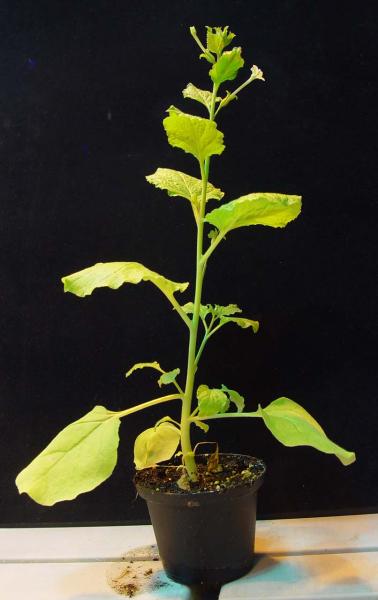Just under two years ago, Canadian biotech firm Medicago began developing a plant-based COVID-19 vaccine. Health Canada, the counterpart to America's FDA, approved the two-dose vaccination series last Thursday after reviewing the results of an ongoing clinical trial in which the shots showed “high efficacy.”
It remains to be seen how effective Medicago's vaccine will be with a dozen others already available, but the technology utilized to produce the shot is quite impressive from a technical standpoint and could be used to rapidly develop better vaccines and treatments in the future.
Safe and effective against COVID-19?
In the recently published clinical trial results, Medicago's vaccine, “Covifenz,” was 71 percent effective against infection by any SARS-CoV-2 variant and 75 percent against the delta variant. The trial began before omicron began spreading around the world. However, Health Canada announced that “preliminary and exploratory data” from the ongoing study show that the vaccine generates antibodies for omicron and its subvariants.
The vaccine has so far been approved for everybody between the ages of 18 and 64 years old. Reported side effects were generally mild and transient. Among 11,933 participants who received COVIFENZ, the most common adverse reactions included:
“headache (68.5 %), muscle aches (67.8 %), fatigue (64.7 %), feeling of general discomfort (63.8 %), chills (46.7 %), joint aches (40.0 %), swelling at injection site (38.0 %), swelling in the neck (22.2 %), erythema at injection site (20.1 %), swelling in the axilla (15.1 %) and fever (9.7 %).”
No cases of anaphylaxis (severe allergic reaction) occurred during the trial, though Health Canada warned that the shots should be “administered with caution” to individuals who are allergic to plant materials. Just 47 participants who received COVIFENZ and 38 participants in the placebo group experienced a serious adverse event (SAE), 0.4 and 0.3 percent, respectively. “There were no notable patterns or significant numerical imbalances between treatment groups” that would implicate the vaccine as the cause of these rare SAEs, Health Canada added. No deaths related to vaccination were reported during the trial.
A new way to make vaccines?
More than 80 percent of Canadians have received two doses of an approved or authorized COVID-19 vaccine, so COVIFENZ isn't a game-changer at this juncture. The new shot is still an important milestone, though, largely because producing vaccines is expensive and time-consuming. We've been making most flu shots the same way for 70 years, mass-producing candidate vaccine viruses in chicken eggs because we didn't have a better alternative until recently. As we discussed in December, mRNA-based vaccines could alleviate some of the existing production issues, and plant-based shots could do the same.
Plants need nothing more than light, water, soil, and inputs like fertilizer to grow, which means they can be used as relatively inexpensive bioreactors to produce the antigens that go into vaccines. Scaling this production process is easier because it only requires more growing areas, greenhouses or fields, instead of specialized cell culture growth media and actual bioreactors.
Medicago's approach to vaccine development is an excellent example. Scientists synthesize genetic material from a virus, say SARS-CoV-2, and insert it into a soil bacterium (agrobacterium tumefaciens) that efficiently infects plant cells. The transformed plants produce virus-like particles (VLPs) as they grow. The VLPs are then harvested, purified, and used to make vaccines that stimulate neutralizing antibody and cellular immune responses to the spike antigen in the case of SARS-CoV-2. The best part may be this can be done quickly. Medicago had a COVID vaccine candidate ready in March 2020, less than a month after the company gained access to the virus's genome.
More to come?
Nobody knows the future, but it's possible that more plant-based pharmaceuticals are on the way. Researchers in the UK recently engineered a tomato that produces L-Dopa, a dopamine precursor widely used to treat the symptoms of Parkinson's Disease. In April 2020, University of Pennsylvania researchers developed a lettuce variety that expresses human insulin-like growth factor-1 (IGF-1), which is already used to treat muscle disorders and may help heal bone fractures. A number of studies investigating edible vaccines have also been published.
Whether or not more of these products ever see commercialization will probably come down to public acceptance. As plant geneticist Kevin Folta and I discussed in a recent episode of our podcast, all of these plant-based drugs are transgenic (“GMO” in the vernacular), potentially making them targets for activist groups who oppose crop biotechnology. Consumers tend to be less fearful of biotech applications in medicine, so perhaps that idiosyncrasy improves the chances of success for edible vaccines and drugs. Only time will tell.



